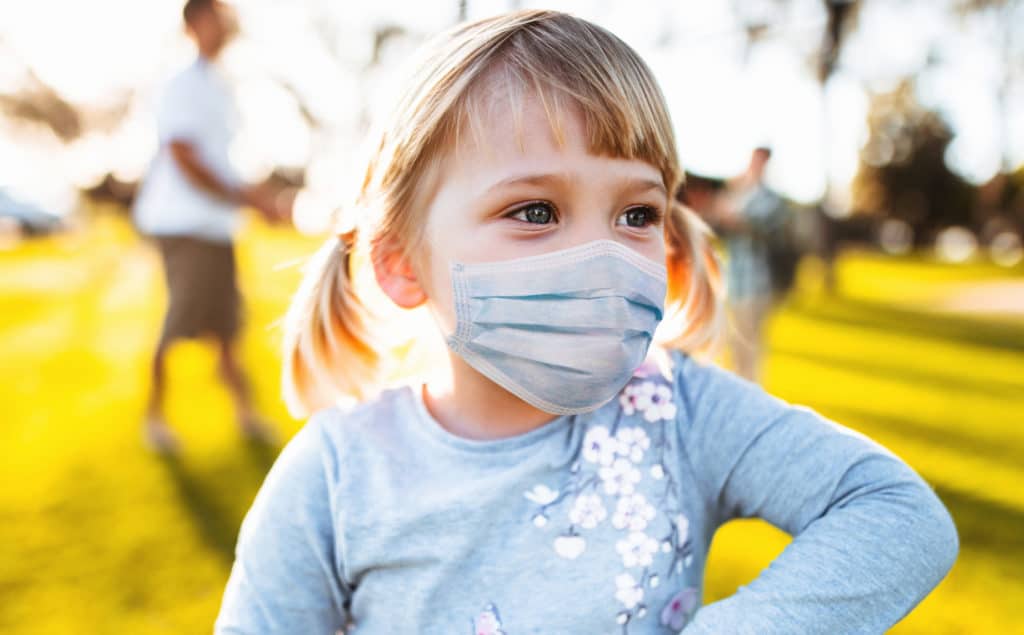
From our friends at Kaiser Permanente
What parents should know about this rare condition and its relationship to COVID-19
In April, as COVID-19 spread across the globe, hospitals in the United Kingdom, Italy, and France began reporting cases of children affected with an inflammatory syndrome that had some resemblance to Kawasaki disease — a rare condition that affects the heart. These new cases were distinct, however, and nearly all these children tested positive for recent COVID-19 disease.
When large numbers of COVID-19 cases started to appear in the United States, cases of this new inflammatory syndrome — named MIS-C (multisystem inflammatory syndrome in children) — began cropping up several weeks after the peak of the illness in New York and at least 18 other states. Much is being learned about MIS-C, and doctors at Kaiser Permanente Northwest are prepared to team up with national and international specialists to study the syndrome.
What is MIS-C?
The leading hypothesis is that MIS-C is caused by a child’s immune response to COVID-19 infection.
“We think the problem is the body’s overreaction to the infection after it’s mostly or completely gone,” says Paul Lewis, MD, a Kaiser Permanente Northwest pediatrician who specializes in infectious diseases. “The immune system is a fairly blunt sword: It gets rid of the bugs — but it often causes collateral damage.”
After the COVID-19 virus has run its course, children present symptoms that signal increased inflammation within different parts of the body, including the heart, lungs, kidneys, brain, skin, eyes, or gastrointestinal organs.
This syndrome typically affects those under 21 years of age who have been infected by COVID-19. Fortunately, very few children in the U.S. have been diagnosed with MIS-C. And according to Dr. Lewis, the symptoms are easy to spot.
”Children who are affected are just generically sick with fever, stomachaches, and respiratory complaints,” he says. “It’s not a subtle problem that a parent will miss — they will see that their child is sick and needs medical attention.”
Dr. Lewis
How is it treated?
Children diagnosed with MIS-C will require treatment in a hospital setting where they can receive what is called “supportive care” to help provide relief from the symptoms while they heal.
So far, cases of MIS-C have appeared only in areas where COVID-19 has infected large populations of adults, with symptoms surfacing several weeks after COVID-19 cases have peaked.
“It seems to follow the infection as opposed to being part of the infection,” says Dr. Lewis. “Even adults with COVID-19 have had issues with an overly exuberant immune response.”

How is it prevented?
Because MIS-C seems to follow a COVID-19 infection, doctors recommend up to date precautions for avoiding the virus — including staying at home, physical distancing and frequent hand-washing. And while recent news images of this syndrome look dire, Dr. Lewis urges parents not to panic.
“For a rare condition like this, we really depend on our national and international collaborators — especially from regions that have been hard hit,” says Dr. Lewis. He cites regions like New York where 119 cases were under investigation as of May 2020.
Locally, doctors have been pooling resources to maximize care and research across the Northwest.
“Pediatric infectious disease specialists from Kaiser Permanente Northwest, OHSU, Legacy, and Providence gather regularly to discuss this evolving syndrome with the intention of having a uniform, high-quality practice for children — no matter which institution cares for them.”
If your child is showing symptoms of COVID-19 or MIS-C, Dr. Lewis recommends contacting your provider immediately.
“All Kaiser Permanente Northwest pediatricians have been briefed and trained about this topic, and we have people available 24/7 to help with any assessment needs,” he says. “It’s a rare disease, and that’s why we have specialists focused on education, prevention, and treatment to keep our communities safe and healthy.”
To learn more about Kaiser Permanente’s commitment to care for moms and children, visit kp.org/maternity/nw.
- Summer Camps with Space - April 16, 2024
- Portland Half-Day Summer Camps - April 16, 2024
- Summer Camps with Space - April 15, 2024



